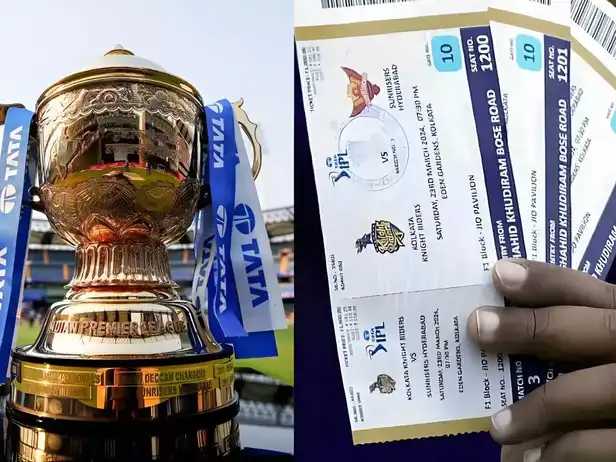With IPL tickets attracting 40% GST compared to 18% on international matches, fans face higher costs ahead of the new season.

IPL tickets will now be taxed at a steep 40% GST, making them significantly more expensive for fans and signalling the government’s new direction in taxing luxury entertainment. This revision follows major reforms in India’s GST regime, which aim to simplify tax slabs and increase revenue from discretionary spending while reducing rates for essential goods.
GST 2.0: Reform background
The 56th GST Council meeting introduced a streamlined structure effective September 22, consolidating India’s earlier four-rate GST system to two common rates, 5% and 18%, and adding a separate 40% category for what are deemed luxury and demerit services. The 40% rate applies to IPL tickets, casino entries, lotteries, betting, and similar activities, distinctly targeting luxury consumption.
IPL ticket pricing: Old tax vs new tax
Previously, IPL tickets were taxed at 28% GST. For example, a ticket with a base price of ₹1,000 required fans to pay ₹1,280 after GST. With the new 40% rate, the same ticket will now cost ₹1,400, a ₹120 increase from September 22. Here’s a breakdown at different ticket prices:
- ₹500 ticket: Now ₹700, which was ₹ 640 before
- ₹1,000 ticket: Now ₹1,400, which was ₹1,280 before
- ₹,000 ticket: Now ₹2,800, which was ₹2,560 before
Read More: Around 59 pc of BCCI’s earnings in 2023-24 came from IPL alone
Government earnings
The rationale behind the GST reform is clear, that while slashing GST on daily-use items could result in an estimated ₹47,700 crore revenue loss, the sharp 40% GST boost on IPL and similar tickets aims to offset this shortfall. Previously, with a 28% GST rate, ticket revenue generated significant but relatively lower collections.
The jump to 40% is expected to substantially increase receipts from major events; each ₹1,000 base ticket yields an extra ₹120 for the government, alongside higher overall turnover, thanks to IPL’s immense popularity. While the government has not provided specific new earning projections, the additional percentage will certainly mean tens of crores more in annual income from IPL ticket sales alone.
Also, BCCI generates over half of its total revenue from IPL alone. In FY24, BCCI generated a total income of Rs 9,741 crore, out of which Rs 5,761 crore came from IPL, which is 59%.
Read More: Which is the second-best cricket league after IPL
Impact on other matches and sporting events
International matches recognised by official federations came under 28% tax slab earlier. But with the abolition of that tax slab, the international matches are expected to be in the 18% tax slab, although no such clarification has been made by the government.
Admission to other sporting events including recognised sporting events where the ticket price is not more than Rs 500 continues to be exempt, and if the ticket price is more than Rs. 500, it continues to be taxed at the standard rate of 18%.
Other premium sporting leagues, like the Pro Kabaddi League (PKL) and Indian Super League (ISL), may also be impacted if officially categorised under the luxury bracket, though the government’s notifications for now focus on the IPL.
Implications for the IPL’s status
This change in tax slab proves the IPL’s sheer magnitude as an “event” in Indian culture. Being singled out for the highest possible GST rate places the league on par with luxury goods, and high-value entertainment, acknowledging both its commercial power and cultural significance.
The IPL’s ticket sales, merchandise, sponsorships, and broadcasting rights routinely set records; such taxation is as much a recognition of its scale as a challenge for franchises needing to recalibrate their business models and fan engagement strategies.
Read More: BCCI invites bids for Team India’s lead sponsorship; bans online money gaming firms among others

